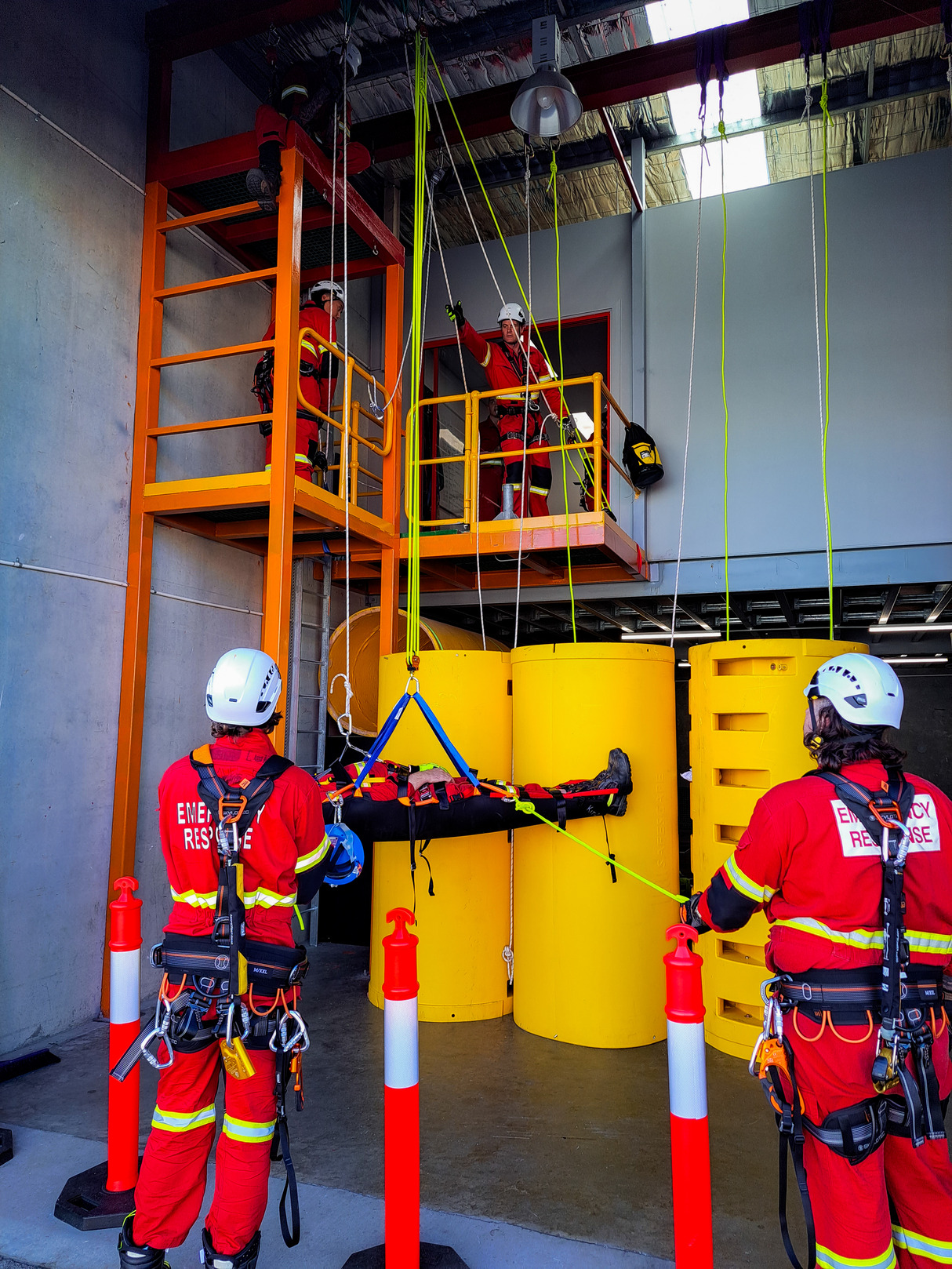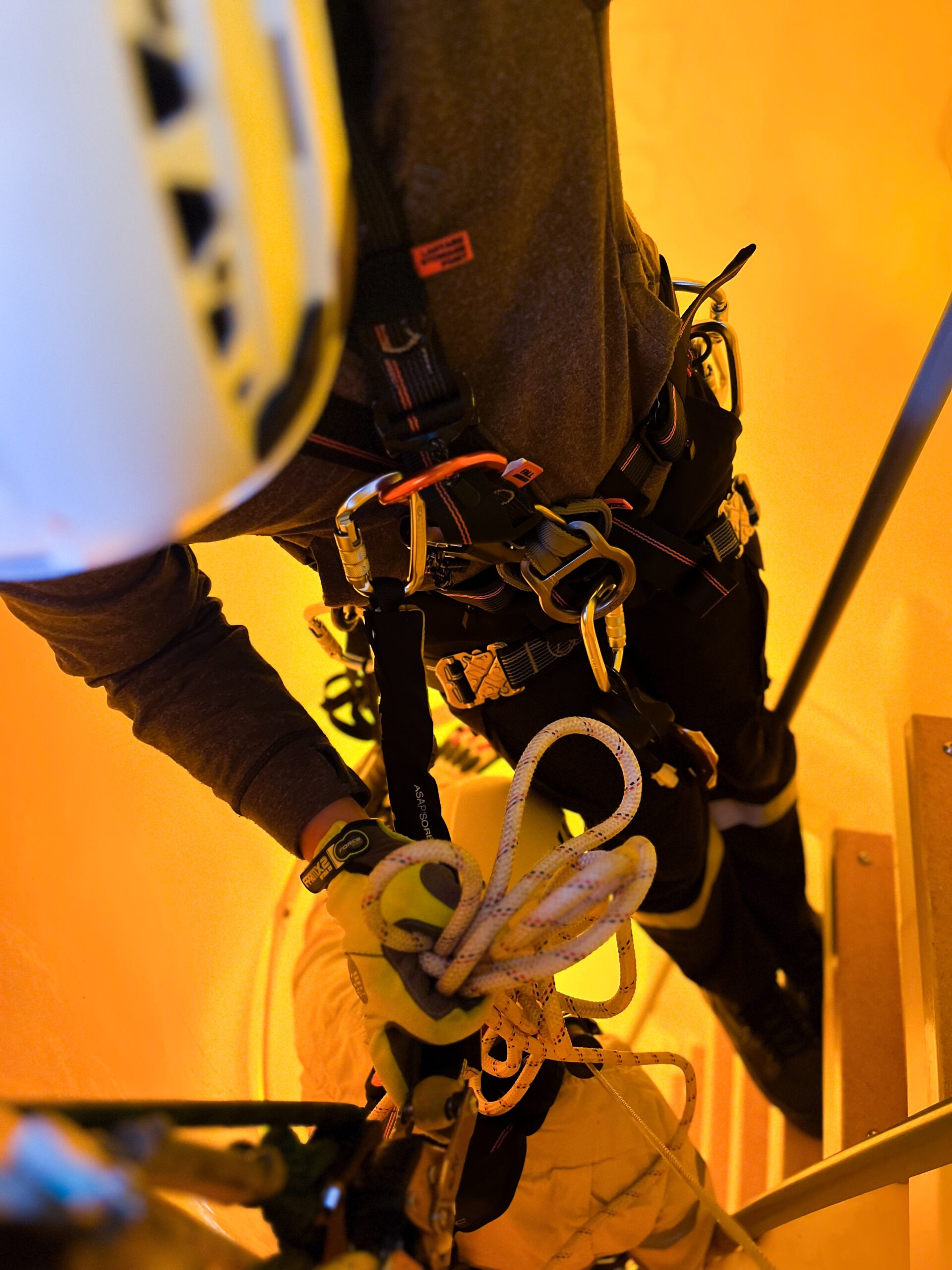Training Plan
Course Information
Course Length: 7 Days
Our Rescue Specialist course is an advanced, nationally recognised training program designed for experienced emergency response professionals ready to expand their capability in high-risk rescue operations. Specifically tailored for professionals in the mining, oil and gas, and heavy industries, the course develops the technical and operational skill set to deal with high-level incidents in high-risk and unstable environments.
Participants will receive comprehensive, hands-on training in vertical rescue (PUASAR032), confined space rescue (PUASAR025), and general rescue operations (PUASAR022), with each scenario designed to mirror the physical and psychological stresses encountered in real-world emergency settings. The course also addresses hazardous materials identification and monitoring (PUAFIR306) to give students an increased level of situational awareness and responder safety when operating in an environment where unknown or hazardous materials are suspected to be present. Risk management is a key focus of the program, with participants being taught to apply systematic risk assessment processes (RIIRIS301E) to inform decision-making and exert control in high-pressure environments.
Participants will also develop a sound knowledge of workplace health and safety practice (RIIWHS201E) and how to work safely and within organisational procedures. Team leadership, communication, and decision-making are integrated throughout the program to prepare participants to manage and lead rescue operations. By the end of the program, participants will possess the technical proficiency, situational awareness, and leadership skills to carry out the most complicated rescue missions, making them highly desirable to emergency response teams and high-risk workplaces.
Training and Assessment delivered under the auspices and in partnership arrangement on behalf of Health Security & Education Pty Ltd, RTO 40907.


Course Outcomes
Upon successful completion of the Rescue Specialist course, participants will be equipped with the advanced technical skills required to perform a range of complex rescue operations in high-risk environments. They will be competent in conducting vertical rescues, confined space rescues, and supporting general rescue operations, all while maintaining compliance with WHS policies and procedures (RIIWHS201E). Trainees will also develop the ability to identify and monitor hazardous materials at an incident (PUAFIR306), enhancing their capacity to assess scene safety and protect both themselves and others during response efforts.
In addition to practical rescue capabilities, participants will gain a strong command of risk management principles (RIIRIS301E), enabling them to assess dynamic hazards, implement effective controls, and make sound decisions under pressure. The course fosters leadership and teamwork in high-stress scenarios, preparing graduates to not only perform rescues but also to manage and coordinate them effectively. These outcomes ensure that participants are fully prepared to act as key response personnel in high-stakes environments such as mine sites, industrial facilities, and emergency service operations.
Units of Competency
Upon successful completion of the Rescue Specialist course, each student will be awarded a nationally recognised statement of attainment. This certification acknowledges the achievement of key competencies essential for effective emergency response and rescue operations. Additionally, students have the option to roll these units of competency into the RII30719 Certificate III in Emergency Response and Rescue, providing a pathway for further professional development and certification.
Participants who attend and successfully meet all the course assessment requirements will receive a statement of attainment for the following Units of Competency:
-
- RIIWHS201E Work Safely and Follow WHS Policies and Procedures
- PUASAR022 Participate in a Rescue Operation
- PUASAR032 Undertake Vertical Rescue
- RIIRIS301E Apply Risk Management Processes
- PUAFIR306 Identify, Detect and Monitor Hazardous Materials at an Incident
- PUASAR025 Undertake Confined Space Rescue
Pre-Requisites
- PUASAR022 – Participate in a Rescue Operation
- PUAFIR306 – Identify, Detect and Monitor Hazardous Materials at an Incident (delivered as part of this course)
Ideal pre-requisites for trainees:
Physical Fitness: Adequate physical fitness to participate in physically demanding activities, such as operating firefighting equipment, wearing breathing apparatus, and conducting rescue operations.
Experience in Emergency Response: A background in emergency response, such as experience in a emergency service officer role or involvement in emergency drills is beneficial, to ensure trainees can apply advanced techniques effectively.
Current Safety Certifications: Up-to-date certifications in workplace safety, first aid, or other relevant areas to ensure preparedness for the risks involved in rescue operations.
